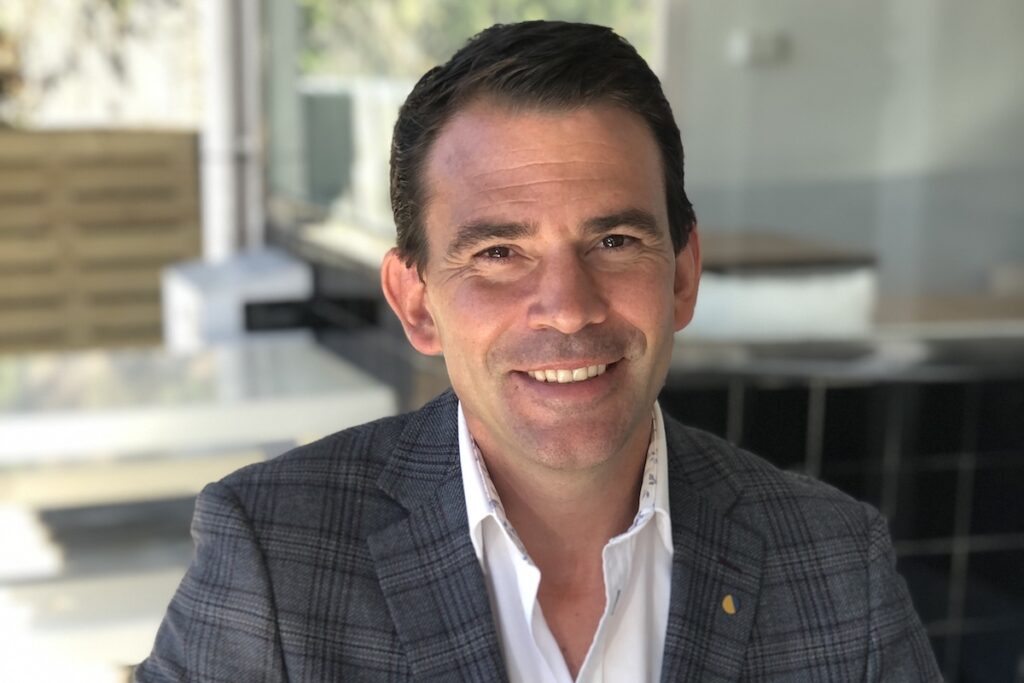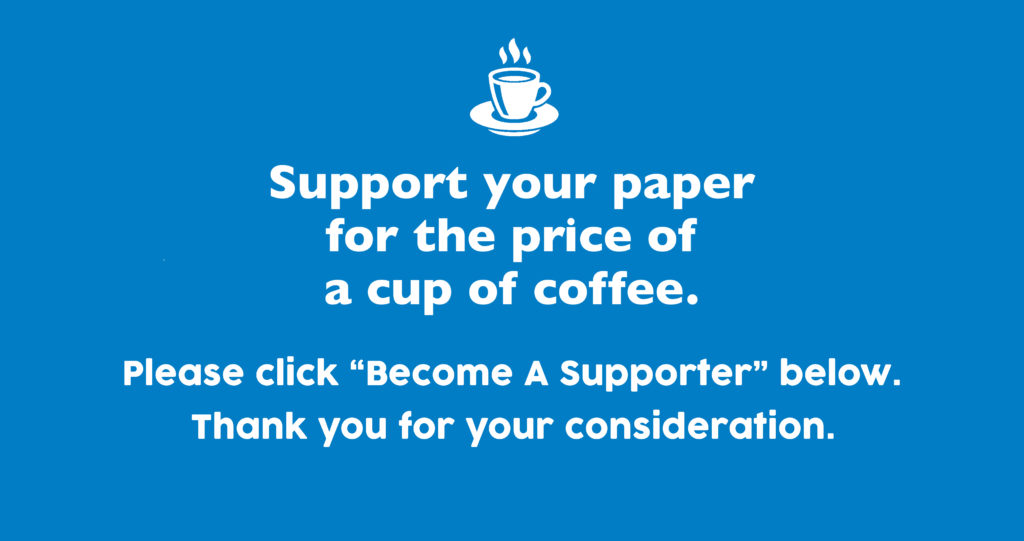What's New
23 March, 2022
Leader of Covid-coverage pack gets back on the trail
Belmont resident Michael Morrah has won plaudits for his reporting during the pandemic. He tells Helen Vause about holding authority to account – and going through Covid himself.

Michael Morrah won Reporter of the Year at the New Zealand Television (NZTV) Awards in both 2020 and 2021, but the acclaimed investigative journalist has lately been lying low at home in Belmont.
Early this month, he abruptly dropped out of the bright lights for a stretch at home, fighting the virus that’s been capturing his professional attention for two long years.
Morrah is now recovered from Covid and heading back to his desk in the Newshub office, when he has coffee with the Flagstaff.
Morrah also won an NZTV award for best news coverage, with a series of critical stories relating to the management of the Covid pandemic as it was unfolding in New Zealand.
In them, he asked important questions about the use and availability of personal protective equipment (PPE) gear, a lack of swabs for frontline workers, and the testing of border workers. He uncovered holes in the government’s management of the spread of Covid and MIQ, holding those in charge to account.
Just doing his job, Morrah says. And now he’s back on deck, expect those Covid stories to keep coming.
As the investigative reporter for TV3, he takes seriously his duty as a watchdog, demanding answers to keep the public fully informed.
Not everyone liked him for it. He faced a social-media backlash from those who perceived his questioning to be off the national script that urged Kiwis to pull together as a tight team of five million. It’s a criticism he’s well used to batting off.
“Journalists are not on the job to be making friends. There were plenty of big questions to be asked during management of the pandemic and it’s absolutely my job to be asking those questions,” says Morrah.
He adds: “I think the country got into a self-congratulatory place about how well we were doing with Covid. And of course, that thinking can be problematic, certainly if it spreads to media too and they become less vigilant.
“It’s not for me to say we’re doing okay with this Covid thing and then just sit back and do nothing, to stop asking questions day by day. If you are not keeping on the case, you are not doing your job.”
He cites the simple example of a call he took one day from an anxious bus driver. In the thick of the pandemic, the driver was worried no one had offered him testing. His call prompted Morrah to ask unpopular questions in high places about testing our frontline workforce.
Morrah laughs at the suggestion a committed sleuth would do it tough to be home sick with the pandemic still raging and the stories of war all-consuming.
For him the work to be done that week was recovering and maintaining the vigilant isolation regime that kept the virus from reaching his daughters Lucia (5) and Bella (7) or his wife Sarah, who is a local GP.
“The hardest thing about it was the isolation, keeping the kids home and away from their lives,” he says.
Morrah has made a career of bringing stories of those having tougher times in far worse places into the living rooms and consciousness of the nation.
“These are stories New Zealanders need to know about. We are so very fortunate here,” he says.
Morrah’s own story began growing up in Whangarei, where his father was a surgeon and his mother a physiotherapist. He has many memories of happy times spent at beautiful Northland beaches, swimming, fishing and gathering shellfish with his family.
He completed a BA at Canterbury University and followed up with a postgraduate degree in journalism. From there, he found jobs back in Northland working in regional radio, chasing stories on his own across the region.
He got his start covering a wide range of provincial news, and he loved it.
But, as is sometimes the way in a tight industry in a small country, he got a break into television through an aunt with connections.
She knew someone in the business well enough to speak up for her young newshound nephew and a door was opened. A lucky break, laughs Morrah, who has been in television now for 16 years and recently celebrated his 40th birthday.
Morrah has increasingly made a name for himself with his investigative work, uncovering uncomfortable truths at home and putting together longer, in-depth stories in countries where human suffering is unrelenting.
As Newshub’s man on Pacific issues, he’s been on the ground where nature has wreaked havoc, turning lives upside down for small island nations.
“Journalists are not on the job to be making friends. There were plenty of big questions to be asked during management of the pandemic and it’s absolutely my job to be asking those questions.”
Michael Morrah
And his work on the measles crisis in Samoa earned him an earlier news-coverage award.
Telling New Zealanders about these events is very important to him. “I feel a real duty to find and to tell these stories. It’s part of my job to be able to educate people here and highlight the plight of others who may not otherwise have their stories told.
“I see it as part of my job and duty to give a voice to those who are voiceless or vulnerable.”
This work has led him to some of the world’s least fortunate people and among lives of unimaginable suffering in places like South Sudan, a country ravaged by war, famine and disease. A hell on earth, Morrah says.
Another series he made took him inside the world’s largest refugee camp in Bangladesh to hear the stories of the Rohingya refugees who’d begun fleeing from their homes in Myanmar in 2017.
“These are the stories that I feel don’t get enough coverage. And if my work can in any way, however small, improve the plight of someone less fortunate, influence laws or make others think differently about their own circumstances, then I’ve achieved what I set out to do.”
He’s working in an era when media and journalists are facing many challenges about the very nature of how they operate, the stories they tell and the complications of being alongside expanding social-media platforms where content is not produced by professionals bound by reporting ethics.
Sometimes the validity of news itself is being challenged.
“The need for quality journalism is always great and it’s always going to be critical in a functioning democracy. In my view, we need brave, strong journalists today more than ever.”
Morah says he’s optimistic about the future of the old-school journalist who does the job ‘without fear or favour’ and he takes his role of mentoring those coming up behind him very seriously. He’s not in it for the awards, but says he finds the affirmation reassuring.
“You get so close to stories and afterwards it’s easy to think you could have done better or done something differently. It’s nice to have someone else say you are doing okay.”
He’s aware the job of a travelling television journalist like himself can be tough on families. But with his youngest having just started school, Morrah says he’s loving the chance to lighten up away from work and mix with the other families in the Belmont Primary School community.
“I tell the girls some children don’t have what they have. But honestly, we’re loving living around here.”

Please consider supporting The Devonport Flagstaff by clicking here:
